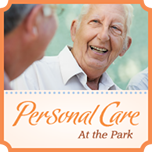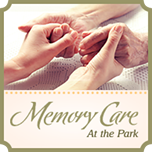As you get older, you may notice a few changes to your body, as compared to when you were younger. Minor aches and pains are to be expected, and although these little things may not be a sign of disease, they can be frustrating. However, it may become a little less frustrating if you understand why these changes are happening. It’s always good to understand the reason behind something, and in doing so, possibly prevent or reduce the amount of age related changes occurring to your body.
Below you will find some of the more common ailments that trouble people as they age and tips to reduce the symptoms or frustration they produce. Not everyone ages the same way, however. These are not “one-size fits all” suggestions to cure all of your maladies. They are merely simple resolutions to common problems.
Skin
Our skin constantly creates oil to keep it smooth and flexible. Without this oil our skin would be the same texture as dried leather. Unfortunately, as we age, the production of this oil becomes less and less, giving way to more wrinkles and more dried skin. At times, your skin may feel like dried leather making it very itchy, which can lead to bleeding from too much scratching. This is especially possible in the winter time when there is less moisture in the air.
Luckily, there are plenty of skin care creams that can help provide you with the natural oils your skin needs to refrain from becoming dried out and itchy. Maintaining your skins health can be as simple as rubbing on cream to your hands, arms, and legs when you wake up and right before you go to bed!
Bones and Joints
Bones lose density over time. This is due to the body’s inability to absorb the same amount of calcium it was capable of when you were younger. Since bones need this calcium to build up strength, they ultimately become weaker as we get older.
In order to maintain strong bones, all one must do is alter his or her diet. By adding more dairy products into breakfast, lunch, and dinner you’ll be making up for your body’s inefficiency to absorb that calcium. You may also take calcium supplements if you find it harder to consume more milk, cheese, yogurt, etc.
Joints become inflamed or ache due to the thinning of cartilage. Cartilage is a structural component of our body that lines the area between two bones. If we didn’t have cartilage, our bones would essentially rub together whenever we performed any task at all, causing a good deal of pain.
This is the case as we get older, unfortunately. Due to the extended use of our joints throughout our life time, the cartilage becomes worn and thin. If you’re experiencing moderate to severe pain in your joints, over the counter or even prescribed medication may be the way to go. It’s important to check with your doctor first, though. The new medications may not mix well with the medications you’re currently taking.
However, if the pain isn’t as severe, physical therapy may be your best bet. This will help strengthen the muscles around your joint to help stabilize it. This will increase your range of motion for that specific joint and decrease the pain associated with it.
Oral Health
Since teeth and bones are made up of mostly the same material, what can happen to your bones can happen to your teeth. And much like your skeletal system, you only get one set of permanent teeth, so you better take care of them!
One way to do so is ensuring you do not suffer from dry mouth. Our saliva is very important to us, believe it or not. Not only does it aid in digestion to soften our food, but it also helps wash away bacteria in our mouth after we eat. If the bacteria does not get washed away, it sits on our teeth, producing acid that eats away at our enamel. This is how you get a cavity, which is basically an open infection in your tooth. Like any other type of infection, it can spread causing severe decay within our mouths.
Regular trips to the dentist office can stave off any type of oral infection. However, if you haven’t been to the dentist in a very long time, try drinking more water. It keeps your mouth from getting too dry and washes bacteria away as well. There are also types of toothpaste you can use in order to get rid of dry mouth.
Your Senses
Unfortunately, the decline of your senses is totally age related and very hard to avoid. You’re going to need some good genes if you wish to keep your sight, hearing, taste, and smell as good as it was when you were young. That’s not to say there’s nothing you can do about it!
Glasses and contact lenses can help you read that tiny text and drive at night time. Hearing aids are becoming less and less invasive, so you don’t have to feel self-conscious wearing one. And using fresh herbs and spices in your cooking can help overcome the notion that foods taste and smell bland to you now. You don’t have to sit back idly and accept that your vision, hearing, etc. will never be the same. There are ways to improve them due to the ever increasing technological discoveries in the medical field!
Aging is a Gift
Now that you understand a little bit more about the common ailments disturbing your daily life, it’s possible to treat them with better care, as opposed to ignoring them. Remember, there’s no reason to feel shame over losing your hearing or seeing a few more wrinkles on your forehead. Aging is a gift. Not everyone gets to experience it.











